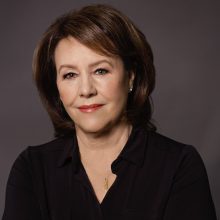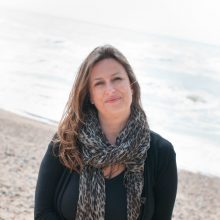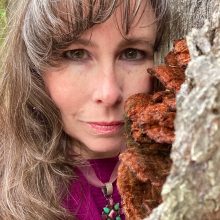Bloodchild by Anna Stephens
What led you into writing?
I’ve always, always loved stories and I had a high reading age when I was young, which meant that alongside Roald Dahl’s The Twits, I was reading William Horwood’s Duncton Wood. I vividly remember reading a historical fiction account of Mary Queen of Scots that I had to rest on a cushion on my lap because it was so big.
So, yeah, books and stories and the pure escapism that came with them. Plus I’ve always had a wild imagination. I think I was always going to do some creative, simply because the worlds I made up in my head were a lot more fun than the real world I inhabited, especially at senior school, where I was bullied for the whole five years.
It took me years and years to get anywhere near publication standard, but as well as being creative, I’m incredibly stubborn, so I wasn’t going to let a little thing like constant rejection stand in my way.
How does a typical day look?
Pretty much the same during the week. I write for about 90 minutes in the morning, try and squeeze in a bit of exercise, then go to work – I’m only working part-time at the moment – and then a few more hours’ writing in the afternoon.
And by ‘writing’ I usually mean procrastinating on the internet and then panicking and my lack of output and writing in a fever to hit some sort of respectable word count, which is anywhere from 1,500 to 3,000 words depending on the level of panic and the type of scene I’m writing.
In what ways do your characters test your abilities?
In my first trilogy, I wrote a couple of characters who, today, we would most likely say were suffering from PTSD. I wanted to be really respectful of that and write it in a way people who have the condition would recognise. So that meant a fair bit of research and really looking hard at their motivations and reactions – things like ‘inappropriate’ levels of anger or fits of weeping. That was difficult.
There was also a character in Godblind and Darksoul who was a sociopath and he was frankly terrifying to write. He made my skin crawl. Some readers didn’t get the nuance I was going for and thought of him as a ‘cartoon villain’, but as writers we don’t get to argue with our audiences.
My biggest aim was to ensure that every character, hero or villain, was believable, including people like Lanta, the high priestess of the Gods of Blood. To make her devotion to such awful deities not just believable, but understandable. That was tough, because I had to work hard to frame their religion in a way that made sense, even while it was completely senseless! But you’d have to ask my readers whether I actually managed it.
What’s your setup?
I have a laptop and a second monitor, a keyboard and a standing desk. It’s mostly covered in toys or, as I like to think of them, friends I can talk to when I’m stuck. And a set of DnD dice so I can roll on important questions like: can I stop for lunch now or do I need to write some more (the lower the roll, the more I have to write).
Behind the monitors is my whiteboard with my monthly targets – edits, word count, new projects, interviews, Patreon work etc – so I can keep a record of how I progress.
What lasting effects have your favourite authors had on your writing and style?
Aside from the recurrent crippling fear that I am unwittingly plagiarising them?
I grew up reading a lot of classic high fantasy as that was pretty much all that was available in the genre, and that definitely affected how I initially approached my early drafts of Godblind. It was all very much dashing heroes and helpless princesses and I couldn’t see any way past writing that as it seemed to me at the time that was the only fantasy being published. Obviously, it wasn’t, but that was what I had access to or was aware of, for reasons I don’t understand myself. It was what I knew, and they do say to write what you know…
And then Joe Abercrombie and Scott Lynch happened and all of a sudden fantasy was different and it really opened up writing options for me. That, and learning that Robin Hobb was a woman (yes, I made the classic mistake) had a huge influence on me, especially understanding that Robin could write complex, dark and violent fantasy and get published despite her gender! That was a real turning point for me and allowed me to push my writing in a more realistic and complex direction, featuring good women and bad women and fighting women – but also emotionally vulnerable men and LGBT characters.
What do you do for inspiration?
I read a lot, both within and without my genre, as well as a lot of non-fiction. I’ve got a whole shelf full of non-fiction at the moment waiting to be read, including Why I’m no longer talking to White People about Race, The Royal Art of Poison, the history of Empress Aggripina, Torture: persuasion at its most gruesome, The Secret History of the Mongol Queens, and more.
Some of those are … quite specific, and slightly alarming, now that I list them, but they do fall strictly under research and I promise not to put them into practice.
I’ve also recently started playing DnD, which I love with all of my heart, and I also practice Italian longsword from the 14th century, which is all sorts of painful fun. Apparently, the older I get, the geekier I become – and the less I care about what people think of that. Which is liberating.
What repeating themes do you find yourself pulling into your stories?
I’m definitely still working through ideas of power and control. The Godblind trilogy absolutely dealt with that – the power of one person over another; the power of gods over mortals; sexual power; manipulation – and the stuff I’m working on at the moment draws in some of those themes again. Hopefully in a more sophisticated manner this time around, as I’m a better writer now than I was then.
Representation is incredibly important to me – my first trilogy featured LGBT+ characters and the new work does as well. There are also characters with disabilities and explorations of opposing ideologies.
How do you wind down?
Reading and watching TV, mostly. I try to read every night before bed, mostly for pleasure but partly because if I don’t my TBR pile might become sentient and murder me.
The power of a good chat and a laugh shouldn’t be underestimated, either, to set the world to rights. DnD is also excellent for this, especially if you’ve had a bad day – just slash that goblin through the hamstrings and chuck a fireball at a zombie. Everyone feels better (goblin and zombie excluded). Plus you’ve hung out with friends and laughed a stupid amount and discovered some treasure and looted a dungeon – the dopamine hit when your DM says you’ve levelled up or awards you XP or gold shouldn’t be underestimated.
What sort of challenges do you regularly overcome while world-building?
The urge to info-dump. It’s laughably easy to do, and then you read it back and usually it’s just laughable. Weaving world-building into a narrative does take a certain amount of skill, as does portraying realistic characters who live in a world nothing like mine. I do a lot of research when I’m drafting, which usually means I have to go back and alter stuff at the start because I’ve just learnt something crucial or really cool that I want to include.
Creating a society or culture that has a sense of reality i.e. depth and history and myth and traditions and economy and currency and beliefs is a huge task, and once you’ve done it, the urge is to tell the reader every little detail of it – but they neither want nor need that much background. It can be frustrating to have the legends of your world carefully archived somewhere and no one to tell, but you have to have them so your world and characters feel real. The balance between exposition and a one-line reference is fine indeed and one I’m still learning to navigate.
What’s the most useful advice you could give to an aspiring author?
Finish the story. Do not decide to go back to the start because you’ve had a cool idea and rewrite it, because you’ll get stuck in an endless loop of rewriting the opening until it’s perfect – it will NEVER be perfect – and you’ll think you can’t move on until it is, so you’ll never finish it.
If you come up with an idea to change the opening, make a note in the manuscript and then carry on the story as if that change has already been implemented. Once the story is finished, fix the beginning.
And always remember that it’s fun. If it’s not fun, why are you writing it?
Tell us about the book you’re promoting.
Bloodchild is the third book in my debut Godblind trilogy. It is the bloody, epic, danger-soaked conclusion to the story of the battle for the country of Rilpor, its gods, and its future. The Rilporians’ way of life has been shattered by the conquering Mireces; their religion has been outlawed and their society subsumed.
The broken remnants of Rilpor’s army have to juggle responsibility to the thousands of refugees in their care with planning and executing an audacious and risky counter-attack to break the Mireces’ stranglehold on their country.
Gods walk the earth, heroes fall, villains rise and nobody – and I mean nobody – is safe.
Publishers Weekly gave it a starred review, saying: “Stephens closes her grimdark Godblind Trilogy (after Darksoul) in spectacular style, dexterously balancing heroism, savagery, and heartache” and “The story builds to an epic crescendo that gives way to a deeply emotional and unexpectedly hopeful ending. This satisfying finale is sure to fulfill series’ fans highest expectations.”
So if that sounds like your cup of beer, please do check it out. The UK/world paperback is out on March 5, and the North American version is published January 14.
👋 Hi! I run Author Interviews
As a new writer I found myself itching to contribute to a thriving, creative community, so I made Author Interviews and I've met loads of wonderful people in the process. You can buy my debut fantasy RINGLANDER: THE PATH AND THE WAY from Amazon.
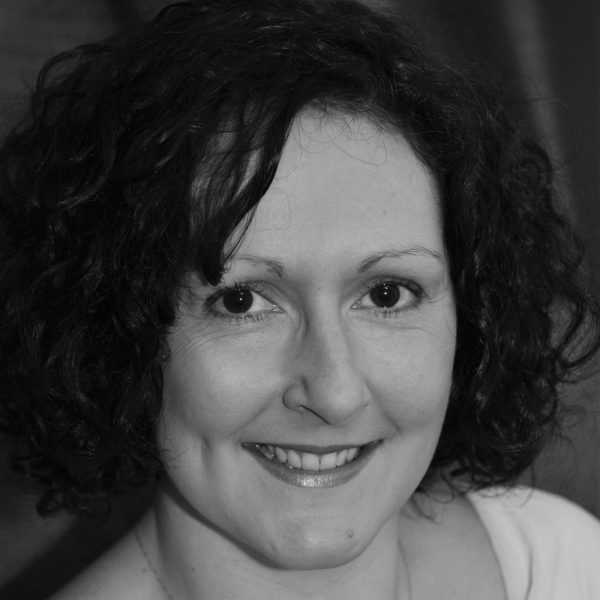
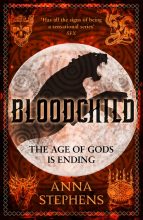
 Audible
Audible